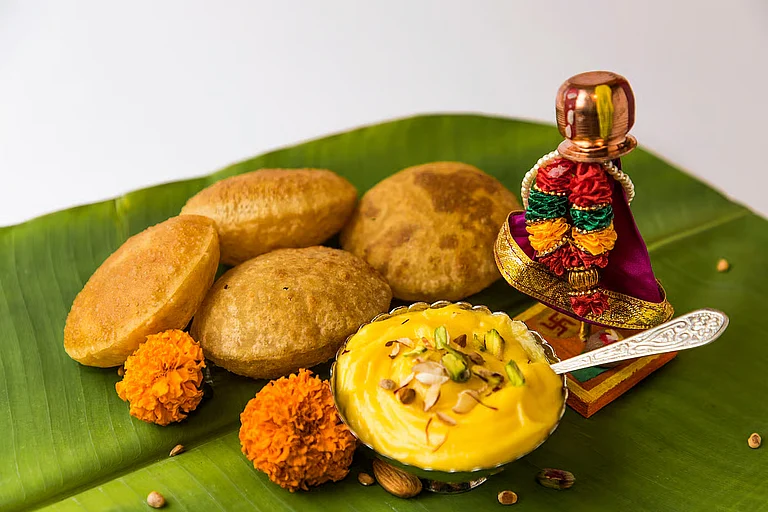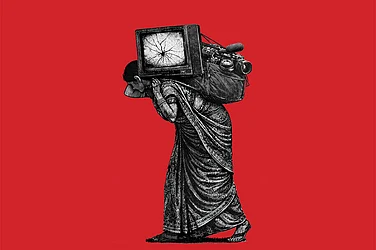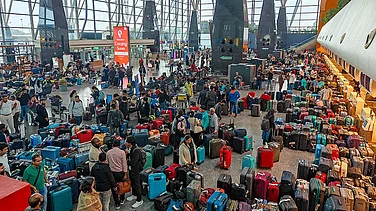As the Union Cabinet reportedly passed the much-awaited Women’s Reservation Bill- awaiting clearance from both houses- the question arises whether it will ruffle the feathers among the opposition INDIA bloc. Will they be able to ride the same boat on the issue given their history of differing views on the bill? Though Bihar Chief Minister Nitish Kumar recently tried to indicate that their flocks will be together, the new move of BJP may put it on the spot.
The history of the Women's Reservation Bill is marred with opposition from parties like SP, RJD, and BSP. The heat for bringing a Women’s Reservation Bill though was built up with P V Narasimha Rao’s decision to pass the 73rd and 74th constitutional amendment Acts that offered one-third reservation to women at the Panchayat level, it was during the Deve Gowda government in 1996 that 81st constitutional amendment had been tabled evoking the possibility of women’s reservations at the levels of parliament and the state legislature.
As the move came on the back of the Mandal-Kamandal debate and the resurgence of caste politics in the country, the OBC leaders demanded separate reservations for marginalised women. Leading the trail of demand, BJP leader Uma Bharti said, “My demand is that there should be reservation for backward-caste women also, as in the Panchayati Raj system. This should be incorporated in this Bill because women from the backward castes suffer the most.”
However, Deve Gowda’s political compulsions due to its coalition with SP made the passage of the bill difficult and it was sent to a 21-member select committee manned by leaders like Sharad Pawar, Mamata Banerjee to look into the diverse possibilities. The committee in its report asked the government to extend the reservation for OBC communities as the SC/STs were already getting it. However, by the winter session, the bill lost its early charm and was put on cold storage.
During the regime of I K Gujral, the bill could not get much traction, however, it found a fresh place in Vajpayee’s first tenure. On one hand, the newest ally of the BJP, Mamata Banerjee was adamant about introducing the bill, on the other, RJD leader Lalu Prasad Yadav and SP supremo Mulayam Singh Yadav rallied against it. The political drama reached its cliff as BJP’s several OBC MPs opposed it.
However, Jayalalithaa’s withdrawal of support from the Vajpayee government in 1999 led to its fall and the proposed bill again lost its traction. In his second term, Vajpayee tried to pass it again, but the ruckus in the parliament fomented by strong opposition of Lalu and Mulayam didn’t let it happen.
The UPA I government under the leadership of Dr. Manmohan Singh achieved the most till now in terms of taking the battle ahead. The Bill was not only cleared in the cabinet, it was also passed in Rajya Sabha on March 9, 2010. However, it couldn’t be brought into Lok Sabha due to the division among UPA allies. One must not forget that after the withdrawal of left from the UPA-I citing their opposition to the nuclear deal with the US in 2008, Dr. Singh’s dependence on other allies grew significantly.
Throughout this history, today’s constituents of the INDIA bloc have never been in the same boat about the Women’s Reservation Bill. It is though very early to grasp their future negotiations; records of their former party leaders represent their robust stance against it.
In 2010, Mulayam Singh Yadav while referring to the bill in a misogynistic way, said, “The Women’s Reservation Bill, if passed in the present format, would provoke young men to whistle in parliament”. Again in 2012, at a rally, he echoed his earlier views: The women reservation bill in its present form would only benefit rich and urban women... our poor and rural women are not attractive..”
The statements of Lalu Prasad Yadav in 2010 also show the strong opposition from the RJD against the bill. While addressing a road show, the former Bihar CM said that the bill would be passed in the Lok Sabha only over his dead body. However, during this period, Nitish Kumar, an ‘on and off ally’ of BJP supported the bill and said that it would be passed in the present form only.
Mayawati’s position regarding the bill has always been clear. In 2010, she asked for a separate reservation for Dalit women without disturbing the existing 28% reservation of the SC/ST constituencies. Another prominent woman leader Jayalalithaa, known for leading the movement to demand 69% reservation for the marginalised communities in the 1990s, came up in full support of the Women’s Reservation Bill and asked parties of all shades to support it in 2012.
Such diverse opinions of the different political parties have always made the Women’s Reservation Bill a floating issue. The timing of the Union Cabinet’s approval of it- just before the INDIA bloc starts their discussions over seat-sharing is seemingly a political masterstroke. On one hand, parties like SP and RJD will not be able to directly support the Bill given their political commitment to OBCs of UP and Bihar, and on the other, Congress will struggle to not lend their hands to it. Is it then a win-win situation for BJP? The remaining part of the special session may hold some answers.























